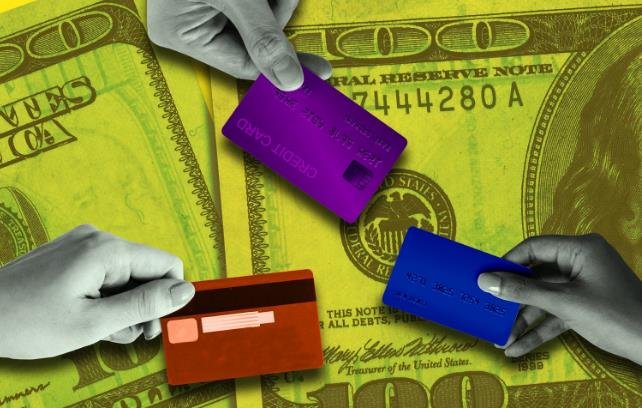According to the latest report by the Federal Reserve Bank of New York, credit card balances in the U.S. reached a new milestone in the second quarter of 2023: they surpassed $1 trillion for the first time ever. This marked a $45 billion increase from the previous quarter, and the largest increase among all types of debt analyzed by the NY Fed.
The report also showed that total household debt rose to $17.06 trillion in the second quarter, up by $16 billion from the previous quarter. The increase in household debt was driven by rising credit card debt, auto loan balances, and student loan balances.
The NY Fed attributed the surge in credit card debt to several factors, including:
- The expiration of pandemic relief programs, such as stimulus checks and expanded unemployment benefits, that helped many Americans pay down their debt during 2020 and 2021.
- The reopening of the economy and the resumption of consumer spending, especially on travel, entertainment, and dining out, after months of lockdowns and restrictions.
- The persistent inflation and rising interest rates that have eroded the purchasing power and savings of many Americans, forcing them to rely more on credit cards to cover their expenses.

Credit card delinquency rates worsen as more Americans struggle to pay
The report also revealed that credit card delinquency rates worsened in the second quarter, as more Americans struggled to pay their bills amid the economic crisis. The share of credit card debt that transitioned into delinquency increased by 0.7 percentage points, reaching 9.2% in June 2023.
The NY Fed noted that credit card delinquency rates were still below their pre-pandemic levels, but they were showing signs of deterioration after a period of exceptionally low delinquency rates during the pandemic. The NY Fed explained that this was partly due to the fact that many credit card issuers offered forbearance and other relief options to their customers during the pandemic, which temporarily reduced the number of delinquent accounts.
However, as these relief options expired or became less available, many credit card holders faced difficulties in meeting their monthly payments. Some of the factors that contributed to this situation were:
- The loss of income or employment for many Americans, especially those in low-wage or service-sector jobs that were hit hard by the pandemic.
- The increase in medical expenses for many Americans who contracted COVID-19 or suffered from other health issues during the pandemic.
- The lack of adequate savings or emergency funds for many Americans who lived paycheck to paycheck or had little or no access to credit.
How to cope with high-interest credit card debt in a challenging economy
The report by the NY Fed highlighted the challenges and risks that many Americans faced due to their high-interest credit card debt in a turbulent economy. The report warned that high credit card debt could have negative consequences for both individual borrowers and the overall financial system, such as:
- Lowering the credit scores and reducing the access to credit for many Americans who missed their payments or defaulted on their debt.
- Increasing the financial stress and mental health problems for many Americans who felt overwhelmed by their debt and unable to cope with their financial obligations.
- Reducing the consumer spending and economic growth for the country as a whole, as more Americans cut back on their discretionary spending or saved more to pay off their debt.
To avoid or mitigate these consequences, the report suggested some possible strategies and solutions for dealing with high-interest credit card debt in a difficult economy, such as:
- Seeking professional help from a reputable credit counselor or a debt management program that could offer advice and assistance on how to manage and reduce credit card debt.
- Negotiating with credit card issuers for lower interest rates, waived fees, or modified payment plans that could make it easier and cheaper to pay off credit card debt.
- Consolidating multiple credit card balances into one personal loan at a lower interest rate that could save money on interest charges and simplify the repayment process.
